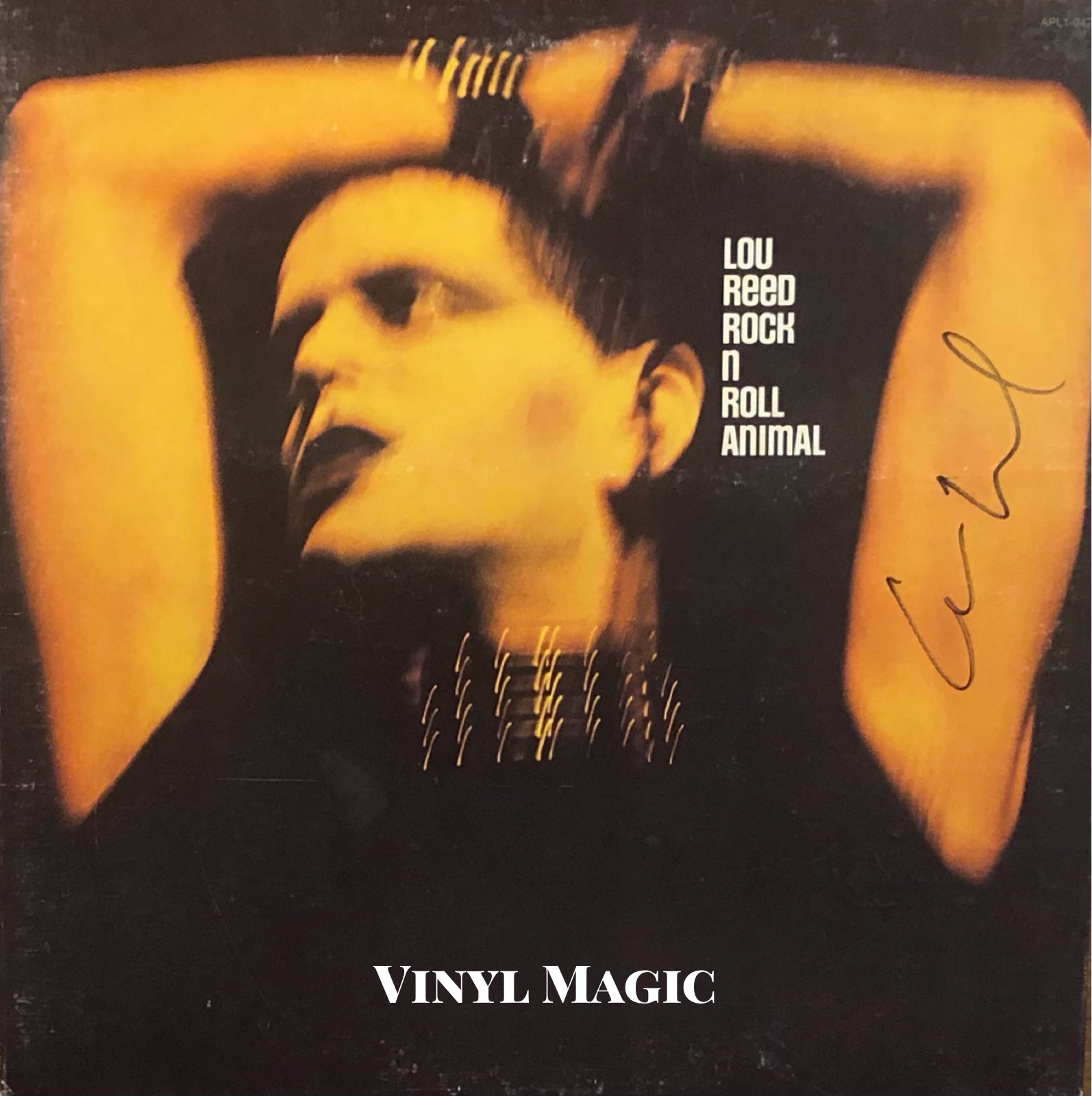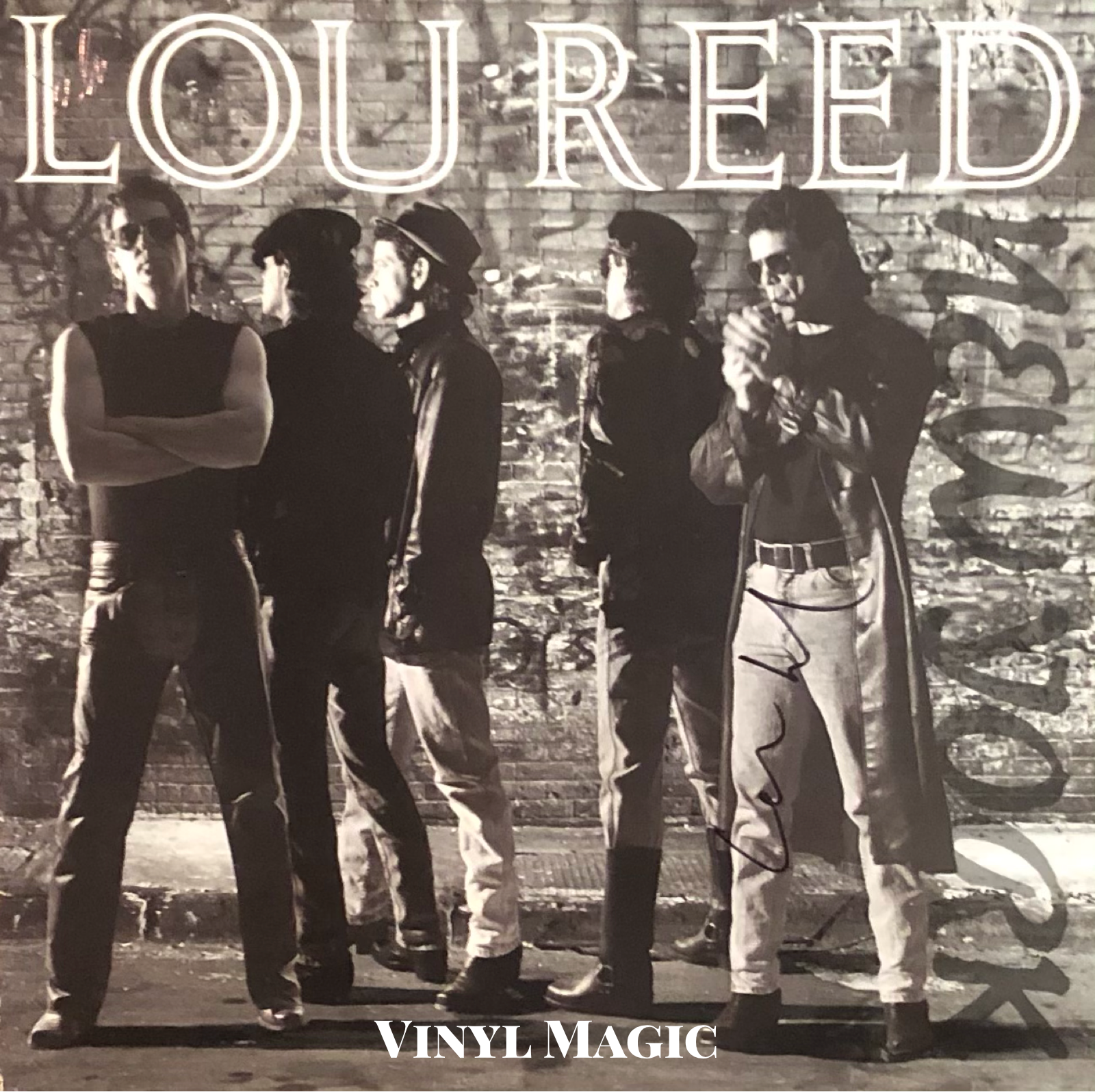Lou Reed and Me…
My God is rock 'n' roll. It’s an obscure power that can change your life. The most important part of my religion is to play guitar.
Lou Reed
Transformer (1972) signed by Lou Reed
What I wanted to do [was] write rock & roll that you could listen to as you got older, and it wouldn't lose anything. It would be timeless, and the subject matter and the literacy of the lyrics.
Lou Reed
The Velvet Underground (1967) signed by Lou Reed, art by Andy Warhol
Lou Reed, an influential rock icon, began his career as a member of the Velvet Underground, a semial New York City rock band in 1965. Brian Eno, the acclaimed producer and recording artist, once quipped, "They only sold 30,000 copies (of their first album) in the first five years, but everyone who bought one started a band." Lou was the principal lyricist for the band, using writing skills he honed as an honors graduate with an English degree from Syracuse University in 1964.
Berlin (1973) signed by Lou Reed
Lou's writing was spare and graphic. His biggest Top 40 hit, "Walk On The Wild Side" released in 1972, was a bleak description of hookers, transgenders, and male prostitutes in a gritty urban landscape, not the usual Top 40 lyrics then or now. Featuring saxophone and upright bass, it was an unusual sonic departure with jazz overtones, David Bowie said upon listening, "I had never heard anything quite like it. It was a revelation to me."
Rock n Roll Animal (1974) signed by Lou Reed
I saw Lou many times over the years, the last time at the Knitting Factory in the late 1990s. The Knitting Factory was a downtown New York City club that featured an interesting mix of avant garde jazz and rock and roll. Diverse artists like Pharoah Sanders, Cecil Taylor, Charles Lloyd, and David Byrne were some of the shows I saw there. It was small and intimate with a capacity around 300 including a small upstairs balcony.
Lou always put on a good show, especially in New York. He was clean and sober since the 1980s and a long way from the wreck he was in the 1970s. I remember an old college friend saw him in Boston in the late 1970s and he told me that Lou was a mess. Lou had just released Metal Machine Music, an unlistenable suite of industrial noise (on two LPs of course!) and he performed it exclusively at this show. The music was grating, but my friend really enjoyed the show from a sociological viewpoint. Lou was being heckled mercilessly by fans who wanted to hear his hits, but Lou didn't care. He was strung out, and he was alternately nodding and combative, a memorable and combustible performance.
New York (1989) signed by Lou Reed
After a crisp and loud Knitting Factory show, I went upstairs to the dressing rooms to see Lou. There was a line of folks with backstage passes waiting. When the door opened, I slid in with the small group of close friends and family and entered. There were a couple of couches in the dressing room where Laurie Andersen (Lou's wife and noted performance artist) was sitting. I saw Lou and asked him to sign a couple albums. He looked at me warily. I sensed his suspicion, so I said, ‘Hey Lou, my brother-in-law just saw you perform at the White House for Vaclav Havel (the recently elected President of Czech Republic and huge Velvet Ungerground fan). He said it was surreal. What did you think? ‘ After a long, uncomfortable pause, Lou replied, "It was........surreal." He quickly signed the albums, then he looked past me, "Bill? Where's Bill? Has anyone seen Bill?"
That was my cue. Bill was his tour manager and Lou didn't want to spend any more time talking to me. I was an intruder and it was time to leave. So I left. Thereafter, whenever boundaries blur, I act creepy or stalk some other artist, one of my closest friends pulls me back with this unsubtle reminder: "Bill? Where's Bill? Has anyone seen Bill?"
New Sensations (1984) signed by Lou Reed





